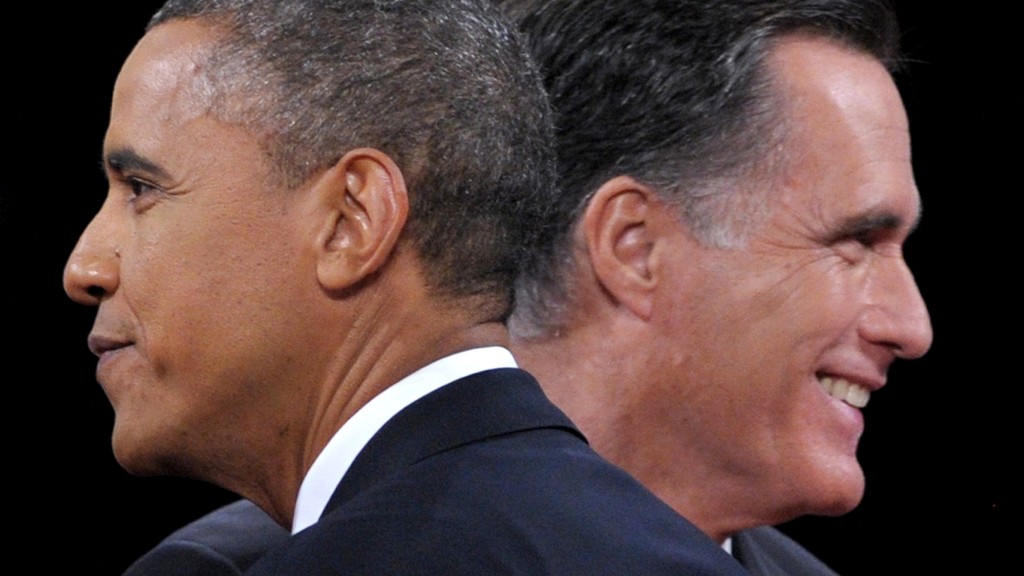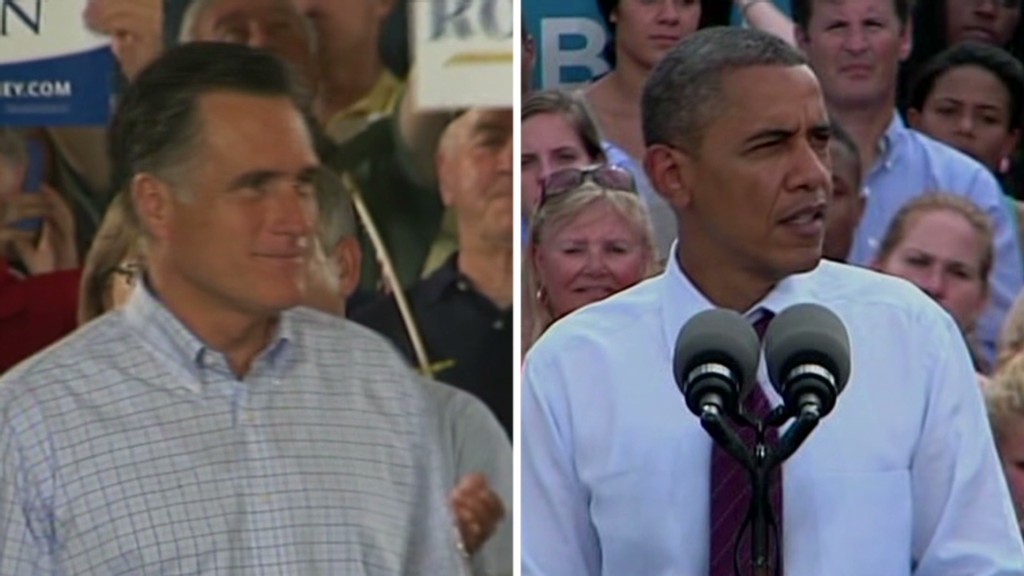
When it comes to taxes, the 2012 presidential election comes down to one question: How much should the rich pay?
After months of debate, Americans on Tuesday must choose between two presidential candidates who have starkly different views on the issue.
They both say they want to keep taxes low on the middle class, which both define broadly.
But President Barack Obama wants high-income households to pay higher tax rates on income and investments. His stated goals: to help reduce deficits, to help the country make critical investments and to increase fairness in the tax code.
Mitt Romney doesn't think taxes should play a role in deficit reduction. Rather, he wants to embark on revenue-neutral tax reform.
Romney wants to cut everyone's income tax rates by 20% but wants the top 5% of households to pay the same share of taxes they do today. To ensure that, he plans to rein in their tax breaks.
One tax break he doesn't want to touch: the lower rates they pay on their capital gains and dividends, which are often major sources of their income. (Related: Why corporate taxes may go up)
One other point of difference between the two: Obama wants to preserve the estate tax, and Romney wants to get rid of it.
Here's a closer look at what each candidate has proposed:
Individual income tax rates
Currently the Bush-era tax rates are 10%, 15%, 25%, 33% and 35%. Those rates are scheduled to expire at the end of the year and higher rates will take their place. The increases would affect those who report wage and business income on individual returns.
Obama: Would make those rates permanent for everyone except those making more than $200,000 ($250,000 if married). For those high-income households, Obama would preserve the rates at the low end (10%, 15% and 25%) but raise the top two rates to 36% and 39.6%.
Romney: Would reduce each of the Bush-era income tax rates by 20%. So the top rate would fall to 28% and the bottom rate would fall to 8%.
Romney would also like to repeal the 2010 health reform law. If he succeeds, that would mean a repeal of the 0.9 percentage point increase in the Medicare tax on high-income households called for under that law.
Alternative Minimum Tax
Currently, unless Congress makes special adjustments for inflation to the amount of income exempt from the AMT, the so-called wealth tax would hit tens of millions in the middle class. Making the adjustment is costly; getting rid of the AMT altogether is really costly.
Obama: Would permanently adjust the AMT for inflation.
Romney: Would abolish the AMT.
Investment income tax rates
Long-term capital gains and qualified dividends are currently taxed at 15%. Interest is subject to ordinary income tax rates. For those at or below the 15% income tax bracket, however, they have a 0% capital gains and dividend rate.
Obama: Would raise the capital gains rate to 20% and tax dividends at ordinary income tax rates for those making more than $200,000 ($250,000 if married).
Romney: Would maintain the current 15% investment income tax rate, but exempt from taxation all capital gains, dividends and interest for those with adjusted gross incomes up to $100,000 ($200,000 for married couples).
Repeal of the health reform law would result in the elimination of the new 3.8% Medicare tax on investment income for high-income households. The new tax is scheduled to go into effect next year.
Carried interest tax rate
Managers of private equity, venture capital and hedge funds are taxed at 15% on the portion of their compensation known as carried interest -- which represents a share of the profits from the funds they manage.
Obama: Would tax carried interest as ordinary income, meaning rates for fund managers would more than double.
Romney: Has said in the past that the rate should not be raised. But during this campaign cycle, Romney's advisers have left open the possibility that he'd consider increasing it.
Tax breaks
Tax credits, deductions and other breaks reduce revenue by more than $1 trillion every year. To pay for lower income tax rates and reduce deficits, many breaks -- including the largest and most popular -- have to be eliminated or curtailed, experts say.
Obama: Has proposed limiting the value of itemized deductions and other tax breaks such as exclusions for those with adjusted gross income over $200,000. Today, many filers in that group can deduct 33% or 35% of a qualified expense. Obama would limit that to 28%.
Obama also has proposed making permanent some expanded tax breaks for the middle class, such as one for college costs.

Romney: Has promised to pay for his $5 trillion tax plan by curbing tax breaks, primarily for high-income filers. One idea he's mentioned: capping the total value of one's itemized deductions. That's not sufficient to pay for his plan, though. If that's the route he chooses, he might also curb the value of personal exemptions and the tax-free benefit workers get when their employers provide their health insurance.
Estate tax
Until the end of this year, only estates valued at more than $5.12 million are subject to an estate tax up to a 35% top rate. Barring congressional action, all estates worth more than $1 million will be subject to the estate tax at a top rate of 55% next year.
Obama: Would reinstate the estate tax at 2009 levels -- meaning estates worth more than $3.5 million would be subject to the tax and face a top rate of 45%.
Romney: Would repeal the estate tax but preserve the gift tax rate at 35%.


